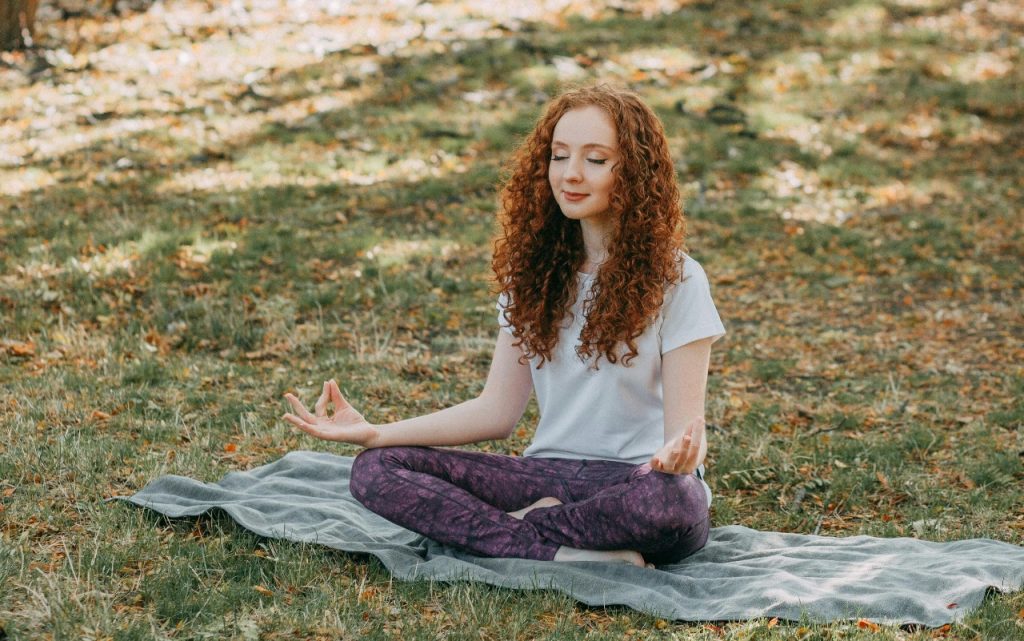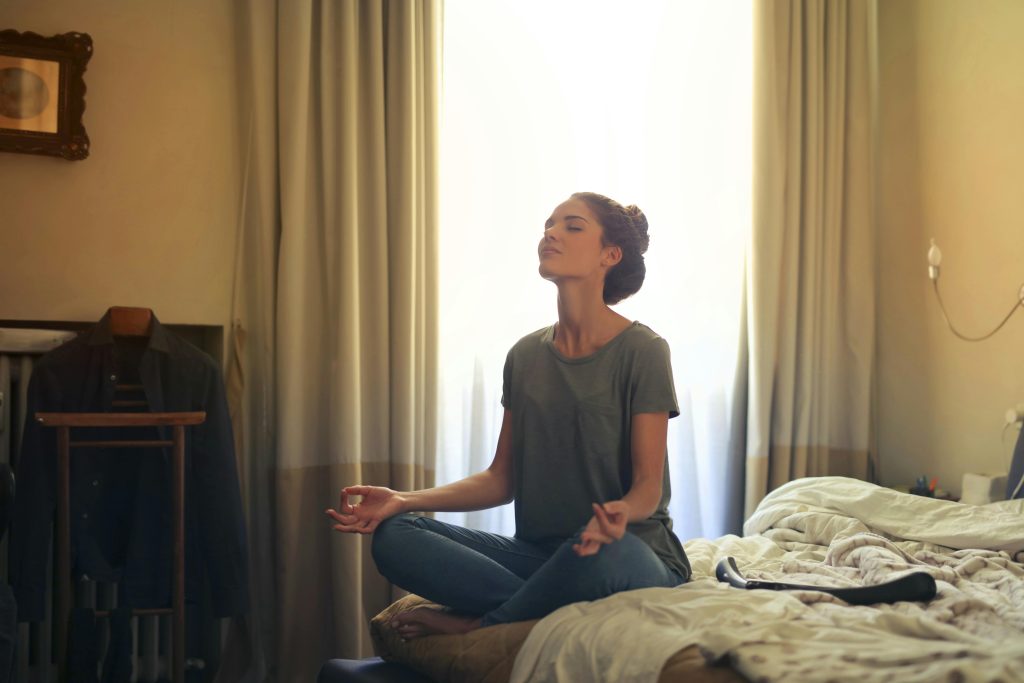
Anxiety is something most of us experience from time to time. A racing heart before a presentation, sweaty palms during a big interview, or that restless feeling at night these are all signs of your body responding to stress. But for many people, anxiety can feel like an unwelcome daily companion, making it hard to relax, focus, or enjoy life.
The good news is, you don’t always need medication to manage anxiety. While professional care is important for severe cases, everyday lifestyle habits can go a long way in calming your mind and body naturally.
Here are 7 simple, science backed habits you can start practicing today to help ease anxiety naturally.
1. Start Your Day with Mindful Breathing
Before you even reach for your phone in the morning, take a few minutes to focus on your breath. Deep, slow breathing signals your nervous system to relax, helping lower stress hormones like cortisol.
Try this:
- Inhale slowly for 4 seconds
- Hold for 4 seconds
- Exhale gently for 6–8 seconds
- Repeat for 5 rounds
You can also use guided breathing apps or short meditations to start your day with a calm, centered mind. Practicing mindfulness early in the day sets a positive tone for everything that follows.
2. Move Your Body Daily
Exercise is often called nature’s anti-anxiety medicine and for good reason. Physical activity reduces tension, releases endorphins, and improves sleep, all of which help keep anxiety in check.
Easy ways to add movement into your day:
- A 20–30 minute brisk walk in the morning or after work
- Yoga or stretching routines to release tight muscles
- Dancing to your favorite music for an instant mood lift
- Light strength training or cycling a few times a week
You don’t need an intense gym session consistency matters more than intensity when it comes to mental health benefits.
3. Limit Caffeine and Sugar
That second (or third) cup of coffee might help you stay awake, but caffeine can increase jitteriness and trigger anxiety symptoms for some people. Similarly, sugary snacks cause blood sugar spikes and crashes, which can leave you feeling irritable and on edge.
Simple swaps:
- Choose green tea or herbal teas instead of multiple cups of coffee
- Keep balanced snacks like nuts, yogurt, or fruit on hand
- Opt for whole foods and complex carbs to maintain steady energy
Your body — and your mind — will feel calmer when your blood sugar and energy levels stay stable.
4. Practice Gratitude or Journaling
Anxious thoughts often spiral when we keep them trapped in our heads. Writing things down helps process emotions and shift perspective.
Try these practices:
- Gratitude journaling: Write 3 things you’re grateful for each morning or evening
- Brain dump: Spend 5 minutes writing whatever’s on your mind before bed
- Reflective journaling: Note one small win or positive moment each day
Over time, focusing on the positive and releasing mental clutter can reduce stress and help your mind feel lighter.
5. Get Outside and Soak Up Nature
Nature has a calming effect on the nervous system. Studies show that spending time outdoors reduces cortisol levels, improves mood, and eases symptoms of anxiety and depression.
Ways to add nature to your routine:
- Take a walk in a park or near trees
- Sit on your balcony or garden for 10 minutes in the morning
- Combine sunlight and movement for double the benefits
- Keep plants indoors for a subtle mood boost
Even short bursts of outdoor time can have a big impact on mental well-being.
6. Build a Consistent Sleep Routine
Lack of sleep and anxiety are a two-way street poor sleep worsens anxiety, and anxiety makes it harder to sleep. Creating a calm, consistent sleep schedule can help break this cycle.
Sleep-friendly habits:
- Aim for 7–9 hours of sleep nightly
- Go to bed and wake up at the same time each day
- Avoid screens, heavy meals, or caffeine at least an hour before bed
- Try reading, stretching, or listening to soft music as a bedtime ritual
When your body is well-rested, your mind can handle stress and anxious moments more effectively.
7. Stay Connected and Talk About Your Feelings
Anxiety tends to grow in isolation. Talking to a trusted friend, family member, or therapist can release emotional pressure and help you feel supported.
Practical ways to nurture connection:
- Schedule catch-up calls or coffee chats with friends
- Join a group or hobby club to meet new people
- Share honestly with someone you trust about what you’re feeling
- If anxiety is persistent, consider professional counseling or therapy
Human connection is a powerful natural stress reliever, and sharing your experiences reminds you you’re not alone.
Final Thoughts
Anxiety is a normal human experience, but it doesn’t have to control your daily life. By building these seven simple habits from mindful breathing and movement to better sleep and meaningful connections you can support your mental health naturally and create more moments of calm.
Start small. Choose one or two habits that feel easiest to add to your routine. Over time, these small, consistent actions can make a big difference in how you feel helping you live with more clarity, calm, and confidence.



